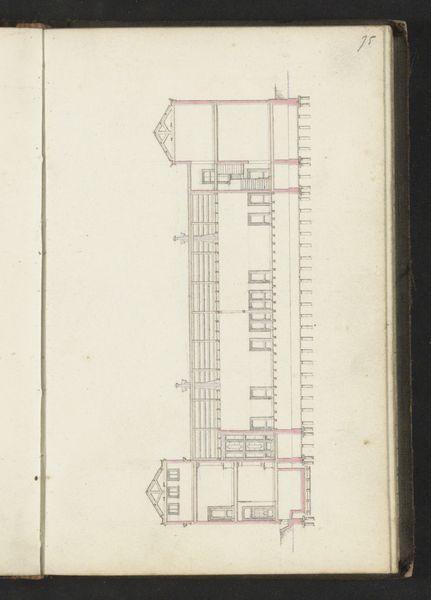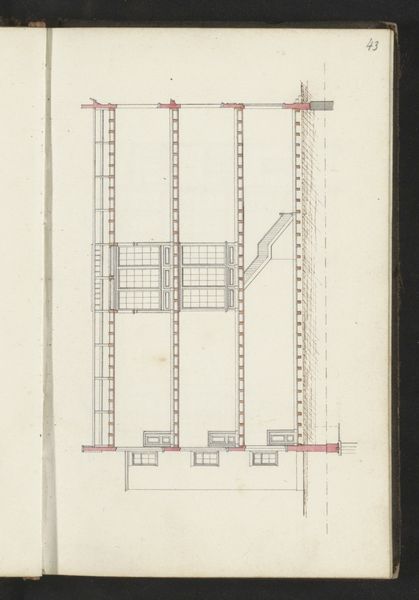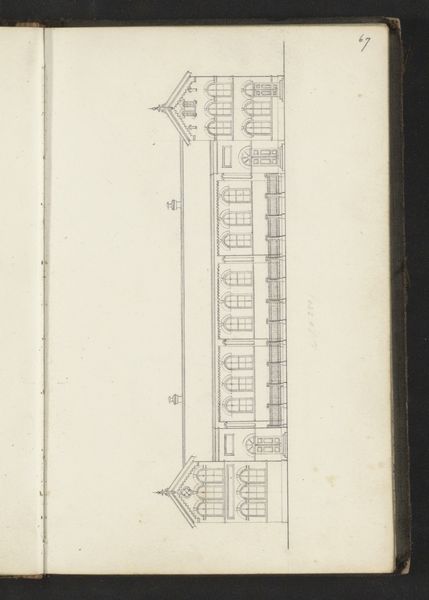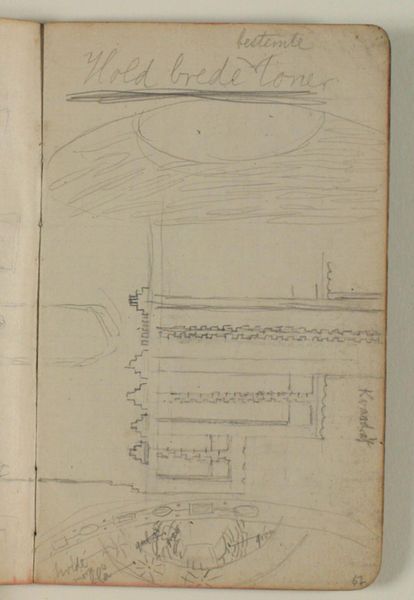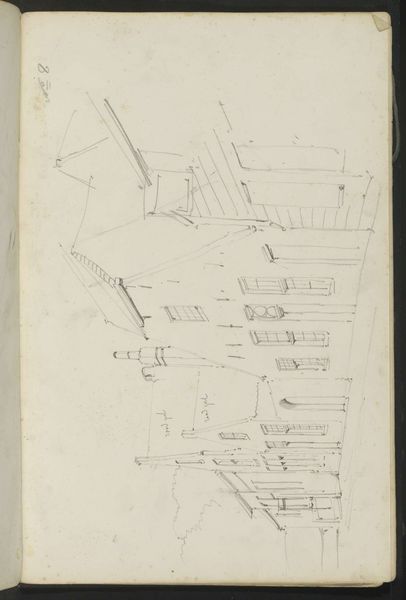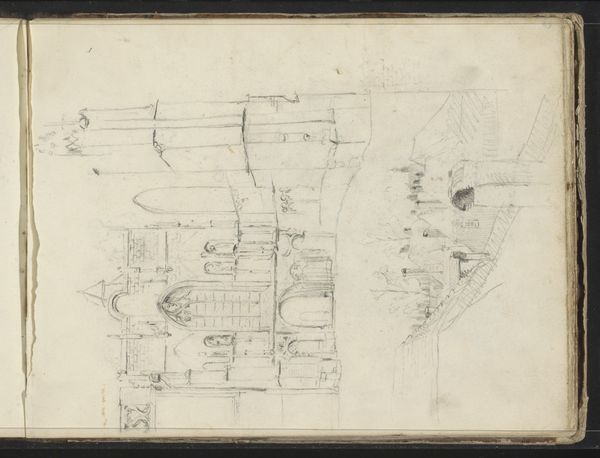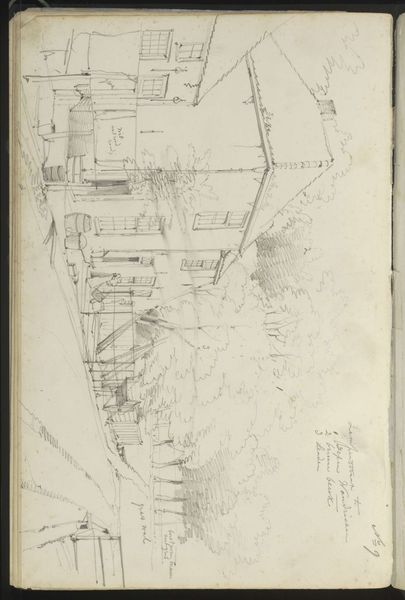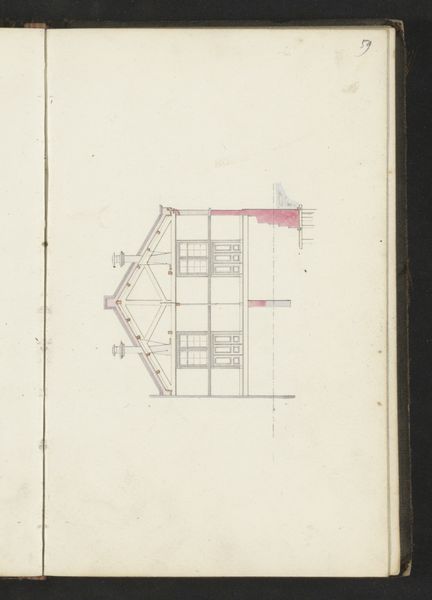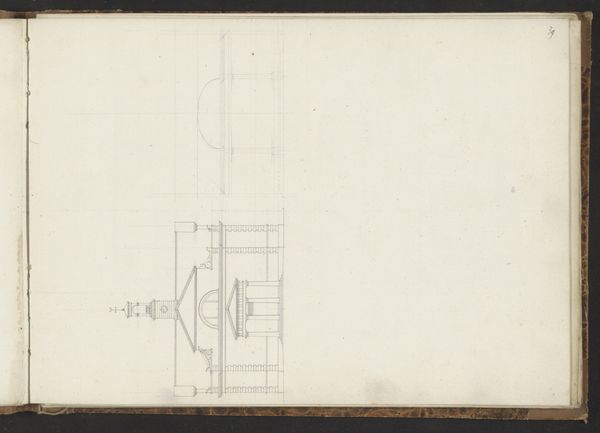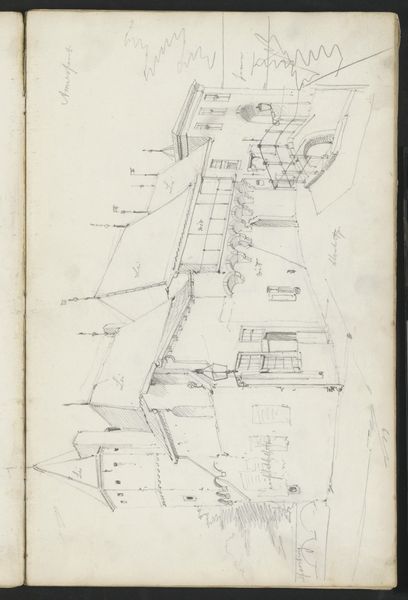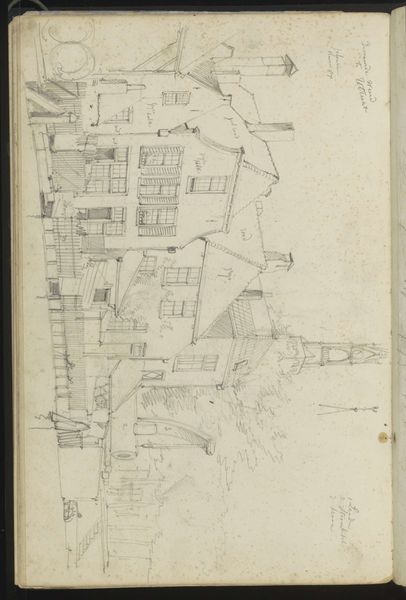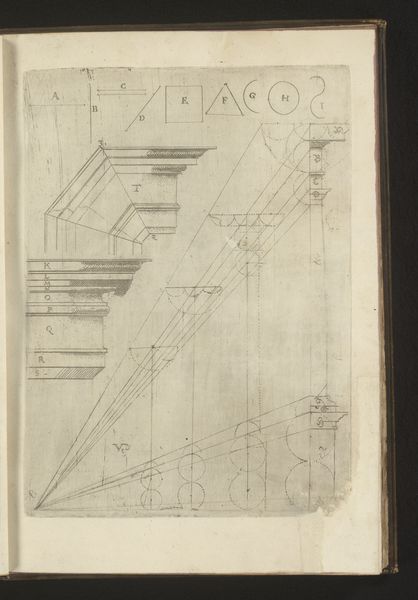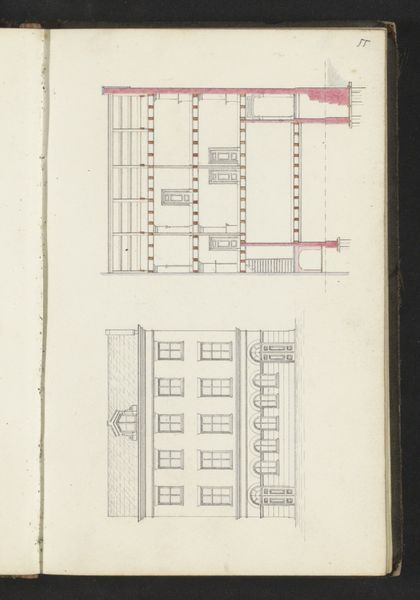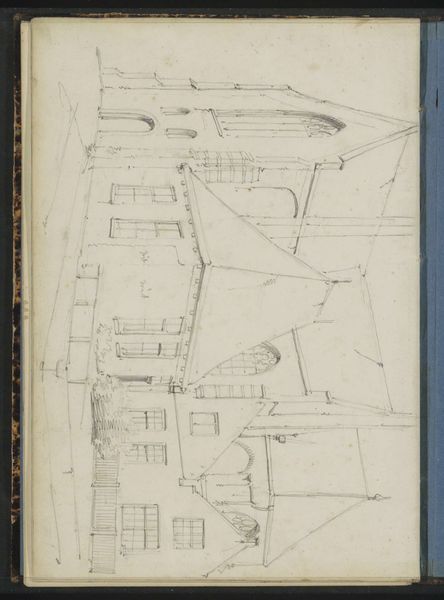
drawing, ink, pen
#
drawing
#
amateur sketch
#
aged paper
#
sketch book
#
incomplete sketchy
#
hand drawn type
#
landscape
#
personal sketchbook
#
ink
#
pen-ink sketch
#
pen work
#
sketchbook drawing
#
pen
#
sketchbook art
#
realism
Copyright: Rijks Museum: Open Domain
Curator: This pen and ink drawing, dating from around 1864, is entitled "Wal" and was created by Willem Springer Jr. Editor: Immediately, the spidery quality of the line work leaps out—so tentative, like catching a thought. A cross-section, but more…atmospheric than technical? Curator: It appears to be a page torn directly from a sketchbook. Notice the way the ink interacts with the paper, its very absorbency contributing to the aged look. We are clearly looking at a working drawing. Editor: There's a mathematical, almost fantastical element to the numerical annotations hovering above. Like a half-remembered dream of building a very specific…something. Does it trigger any architectural hunches for you? Curator: Absolutely! Given the context of Springer's body of work and the period, I see this as a very real technical study— perhaps preparatory plans for fortifications, harbor works, or another kind of essential public structure, and certainly designed to manage some type of water. These elements relied on pen and ink drawing and handwritten documentation, so it shows both practical and industrial means and application. Editor: I can just picture him, quickly sketching this out in his book on-site. What do you imagine the working conditions of an artist tasked with this record-keeping might be like, versus someone dedicated to pure studio painting? Curator: Consider that many of these documents would have been reviewed and copied to scale by laborers in a draughting office. Understanding these production methods tells a great deal about the art world as a whole and allows one to reconsider ideas of a single artwork being authored by an individual versus a whole workforce. Editor: I get the sense it captures something essential about the way progress imprints itself, physically, onto our surroundings. The mundane yet profound. Thanks for sharing this lens on this work. Curator: My pleasure. Considering such practices, what seems simple on its face might contain a world of complexity if we look closely.
Comments
No comments
Be the first to comment and join the conversation on the ultimate creative platform.
